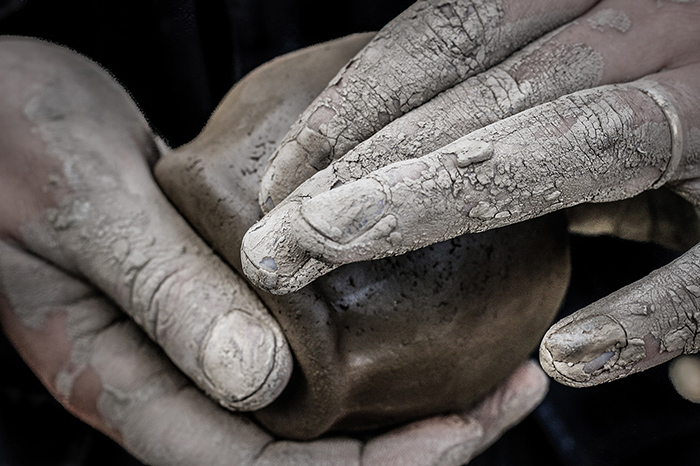UCD Centre for Experimental Archaeology and Material Culture (original) (raw)

UCD’s Centre for Experimental Archaeology and Material Culture, established since 2012, is one of the only specifically designed and dedicated, on-campus university facilities in the world for experimental archaeology and material culture studies. It supports research projects, innovative teaching, and public outreach activities, so as to enable the creation amongst the academy, students and the public of a better understanding of the nature and role of crafts, technologies and materiality in people’s lives in the past.
Director: Professor Aidan O'Sullivan
Co-Director: Brendan O'Neill
Science and Communication Officer : (opens in a new window)Anita Radini
The Centre’s current Director is Professor Aidan O’Sullivan, but research project activities are essentially driven by Principal Investigators, including UCD School of Archaeology academic staff, postdoctoral Fellows, PhD and MA scholars, who design and lead their own specific projects. Current and ongoing research projects include work on Mesolithic, early medieval and Viking Age houses, on beetles and environments, on pottery manufacture, on the use of stone, flint, chert and quartz technologies, on bronze, iron and glass-working, and on various aspects of food technologies, production and processing. Other projects are planned and multidisciplinary collaborations are also being established with other UCD Schools (e.g. Mechanical Engineering, Soils Science). There is strong potential also for international academic collaborations, particularly through the Centre’s established connections with EXARC (the global network for Archaeological Open-Air Museums and experimental archaeology, Prof O’Sullivan became a Board Member in 2014), with the ultimate goal of an internationally funded European research project on experimental archaeology. The UCD Centre for Experimental Archaeology and Ancient Technologies has already successfully attracted a significant Marie Curie Postdoctoral Fellowship, 3 Irish Research Council and Teagasc Walsh PhD Fellowships), as well as external funding for various research projects.
The Centre also has promoted a strong research into teaching philosophy, with the establishment and continuous enhancement since 2012, of innovative undergraduate and taught graduate experimental archaeology modules at the Centre. In the Level 3 module, “ARCH30500: Experimental Archaeology and Ancient Technologies”, students are taken through a week-long intensive module at the Centre on experimental archaeology and material culture, and then design, implement and analyze the results of their own original project. In the MA module “ARCH40740: Experimental Archaeology and Material Culture”, a similar approach is taken but at an advanced level. These modules—and others are increasingly associated with the Centre—have been transformative of UCD students’ practical experience of material culture, and are also innovative in their use of Problem-Based, Enquiry-Based and Peer-Learning, encouraging project design skills, originality, creativity, resourcefulness, teamwork, and also facilitate multiple-intelligence learning experiences.
The third element of the Centre is Public outreach and Communications. This has been highly successful, creating a distinctive extra identity and reputation for UCD School of Archaeology and the University, amongst an international and national audience. The Centre has organized 2 major international conferences (including EAC9, 9th Experimental Archaeology Conference, the largest ever); as well as schools and community outreach, and a vigorous social media strategy (Facebook), while also being utilized by UCD in its own websites and publications, as well as figuring in numerous Irish and international print, internet and television media and websites.
With further developments since the RQA review period (2010-2014) in 2015, the UCD Centre for Experimental Archaeology now combines a larger (100m x 80m) fenced enclosure, offices, laboratory spaces, workshop/teaching room, all specifically designed as a combined facility for experimental archaeological and material culture scientific research and teaching. The challenges for the further development of the Centre would therefore include strategic planning and design, the securing of major funding, international partnerships, and an even more ambitious research, teaching and public outreach programme in the life of the new School and University College Dublin Strategic Plan.